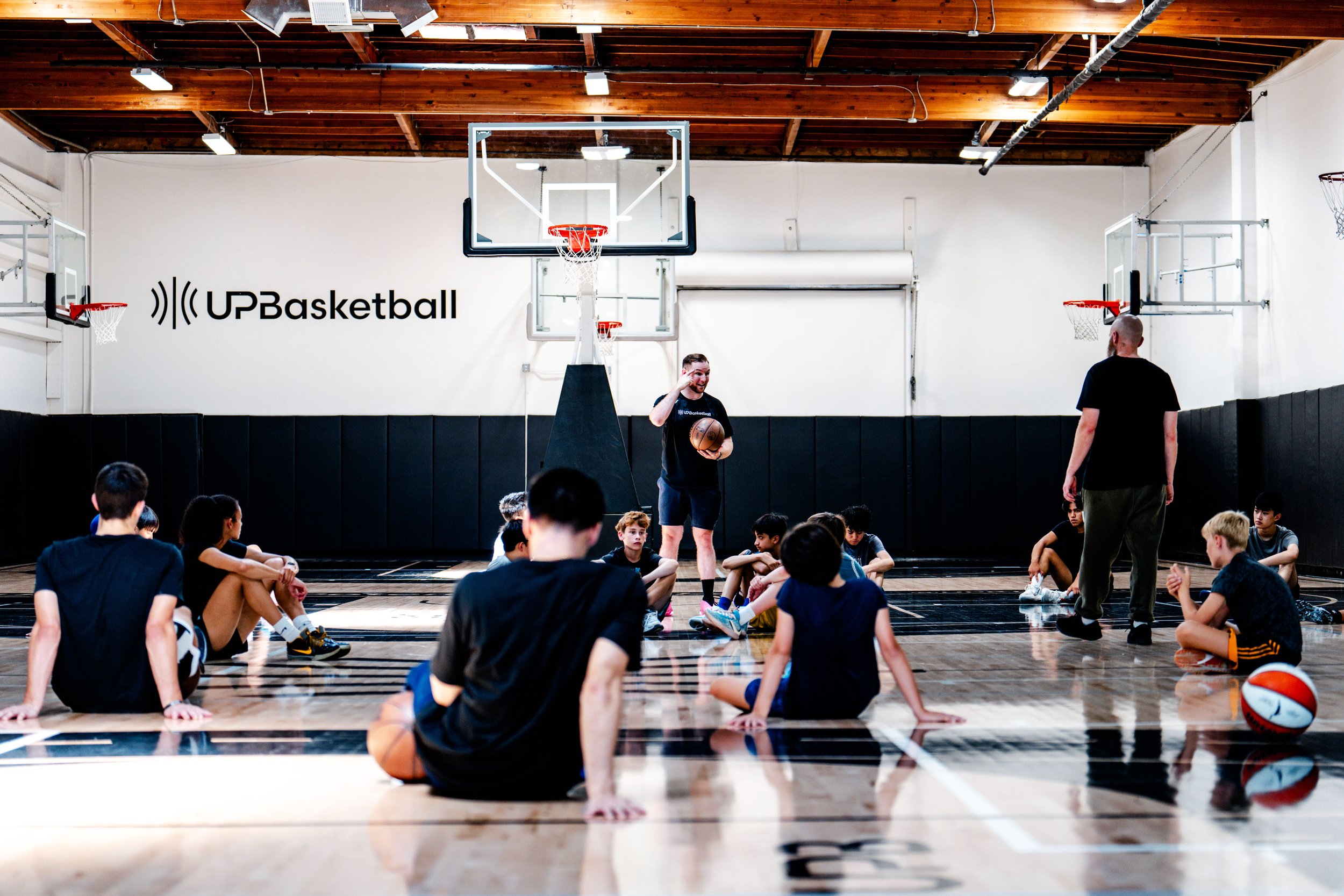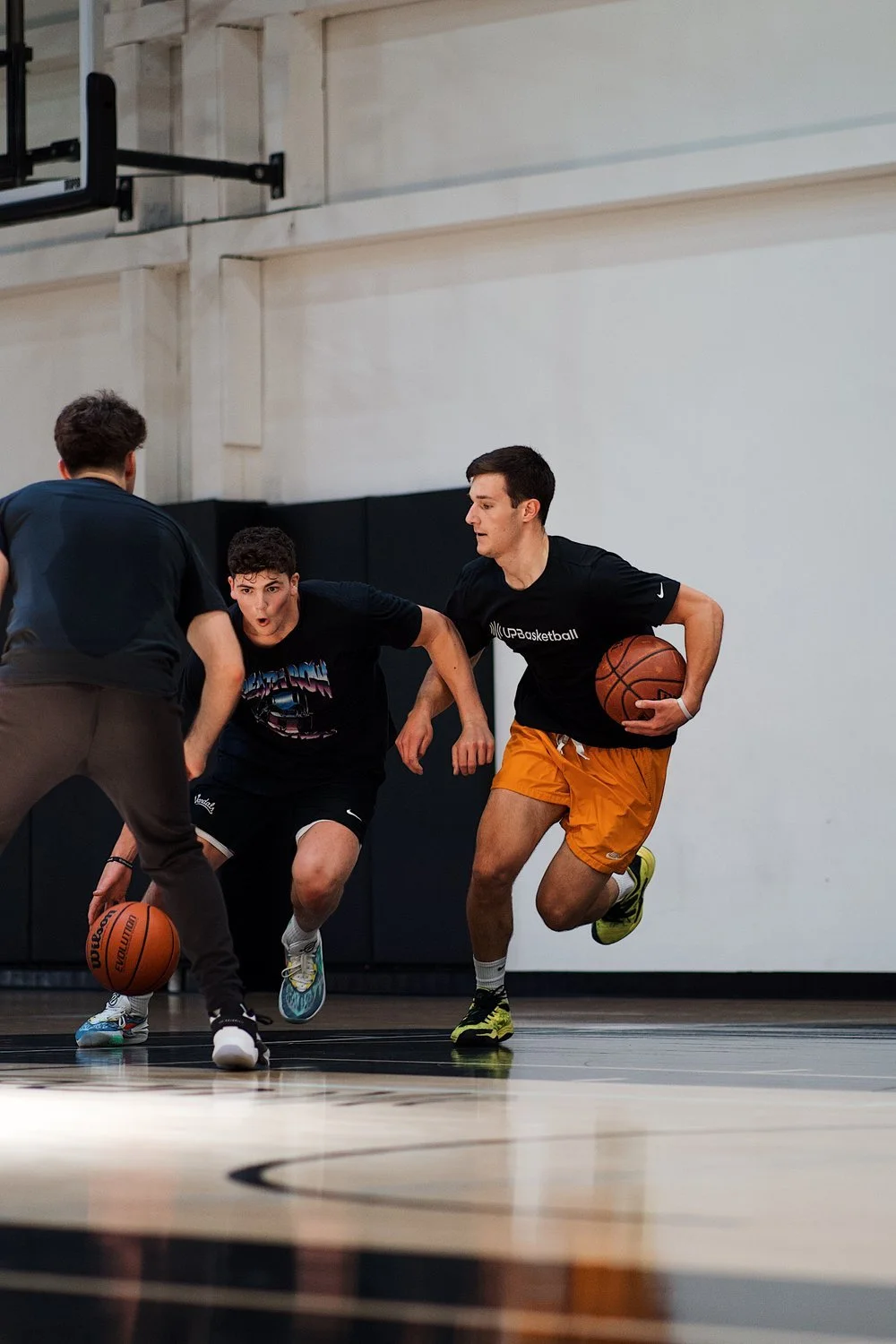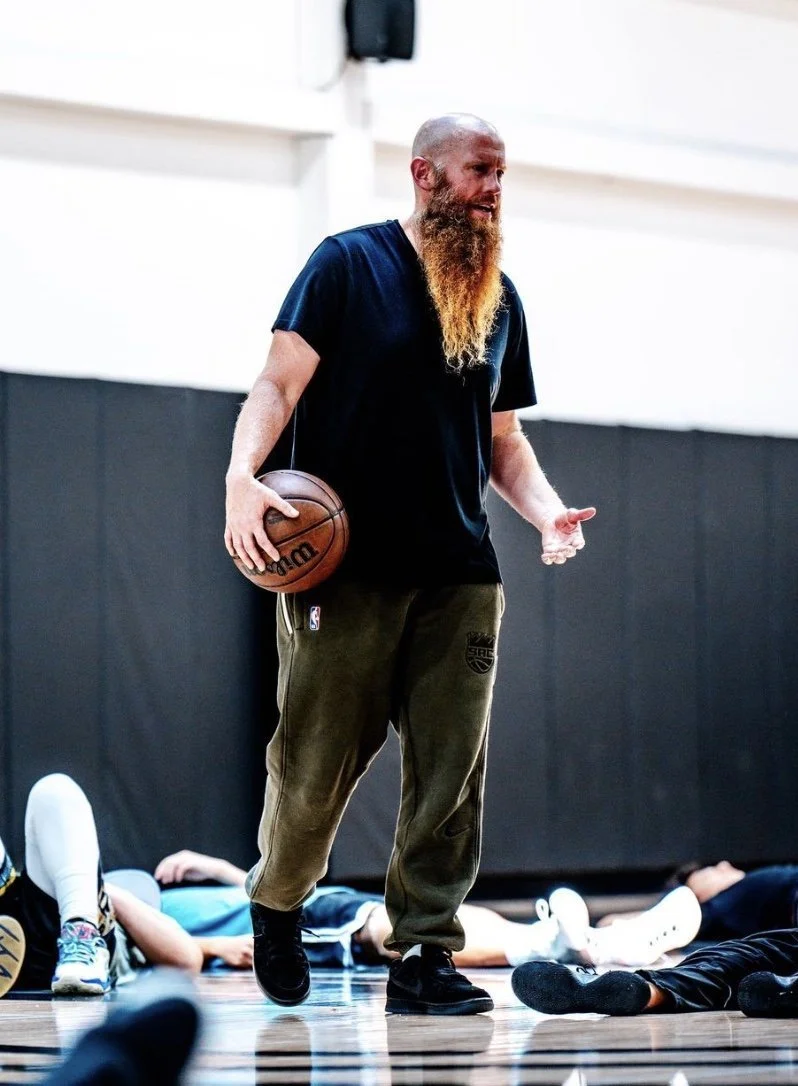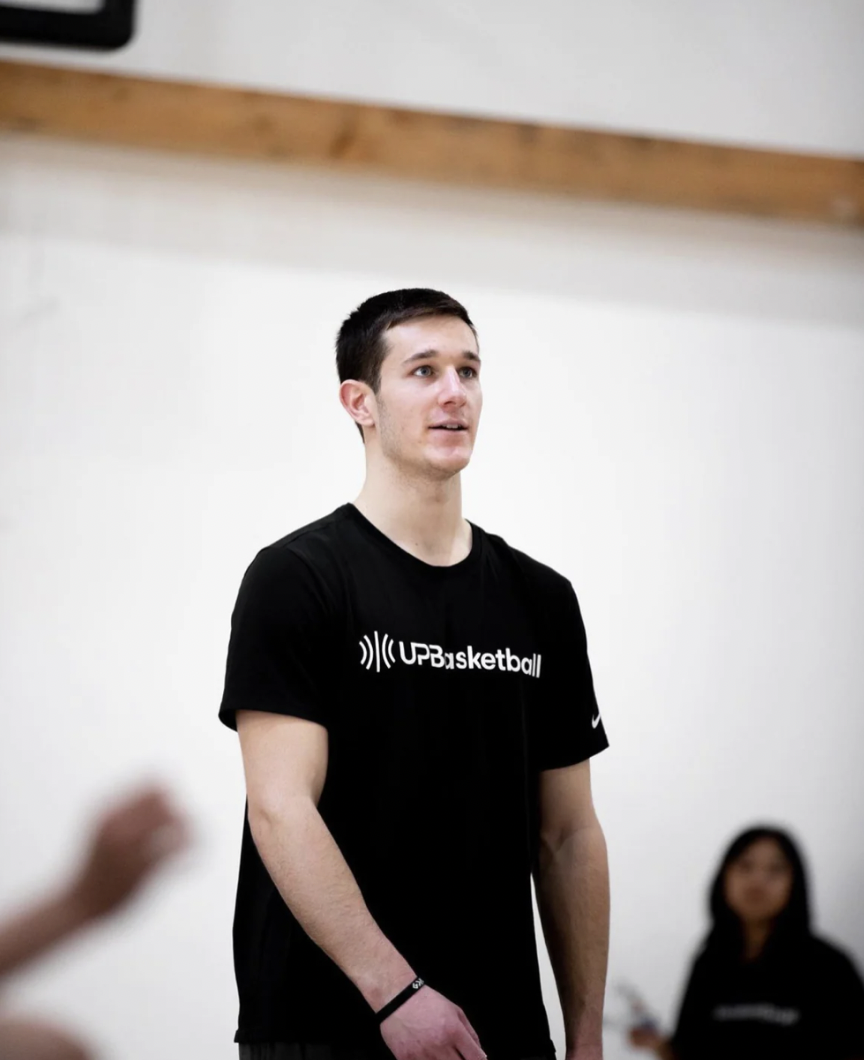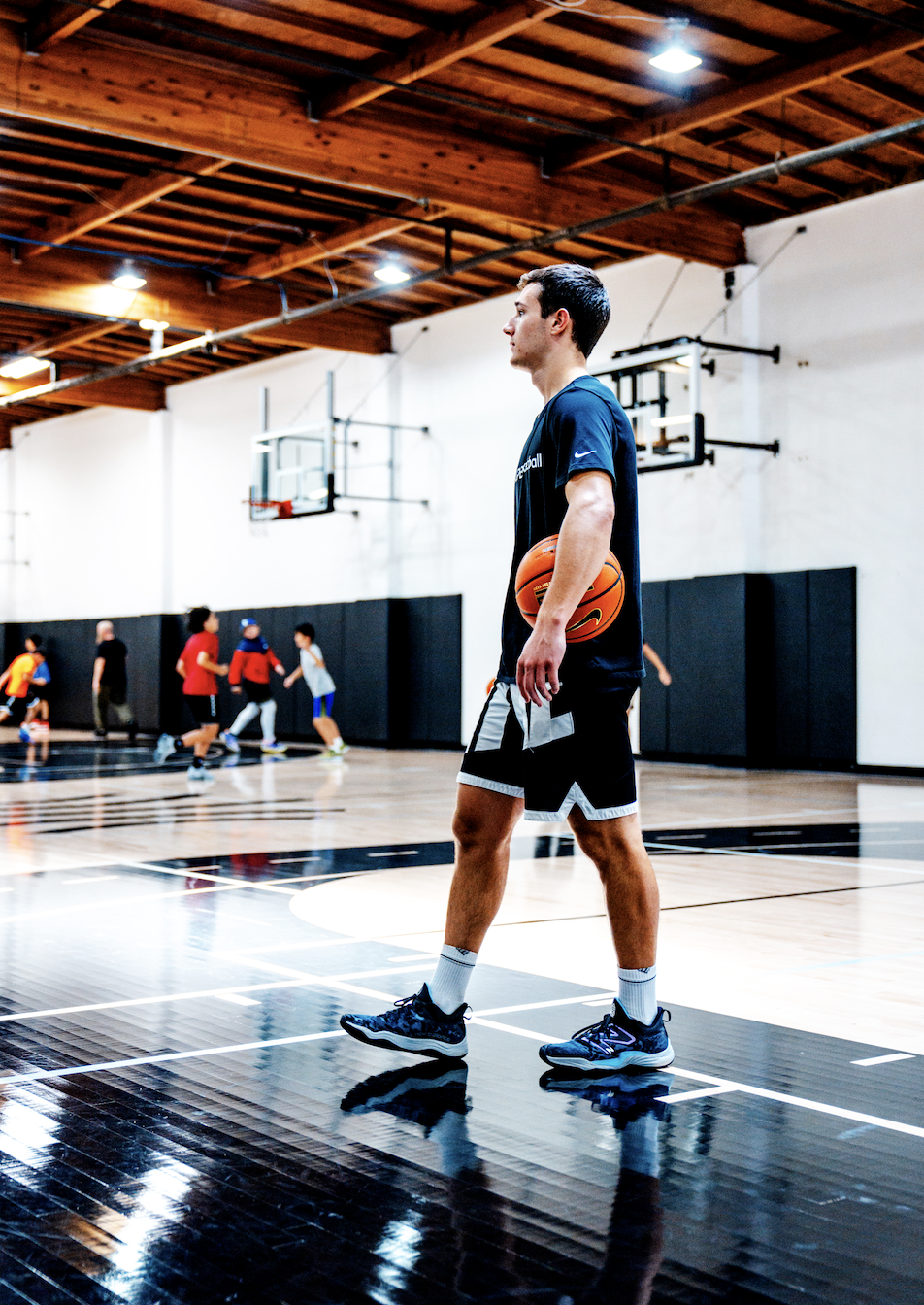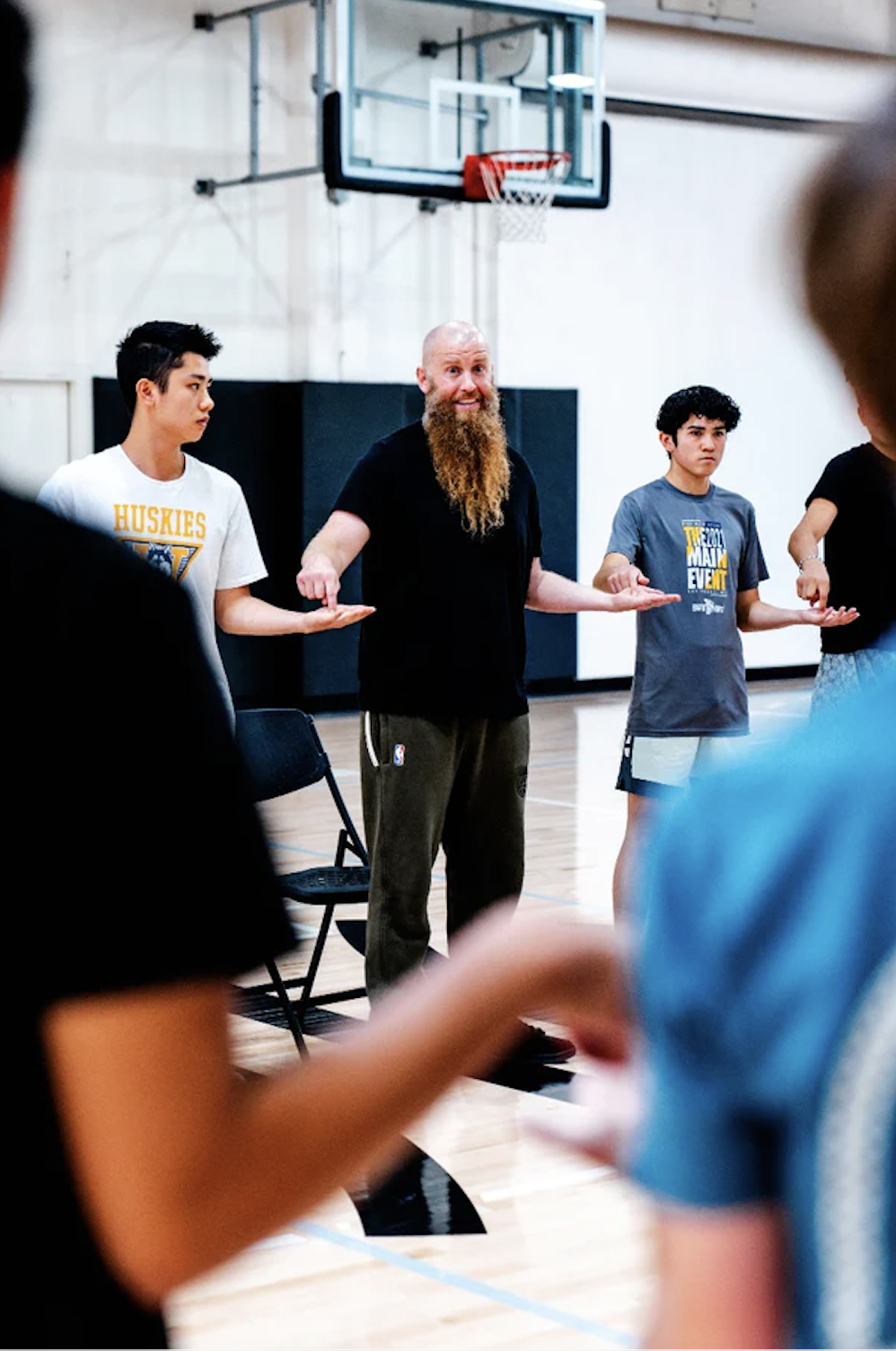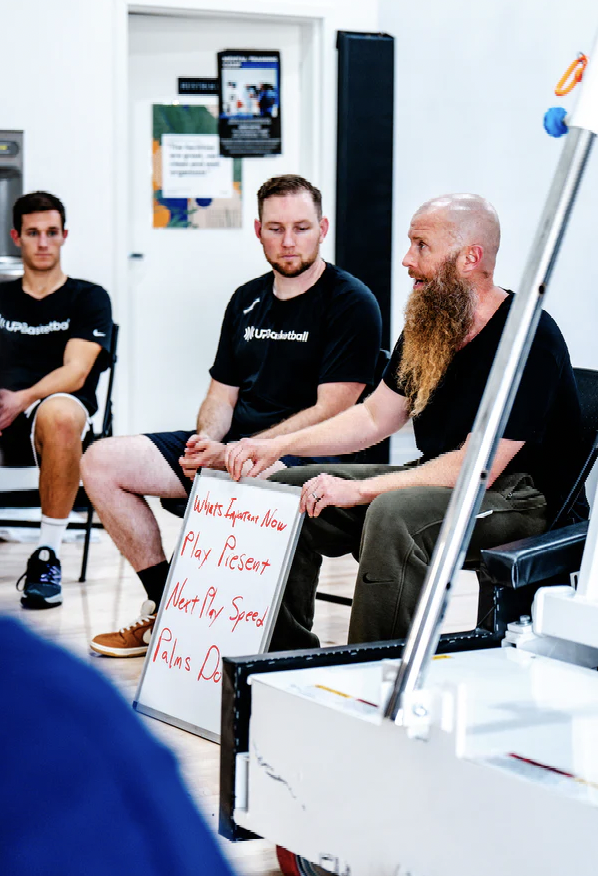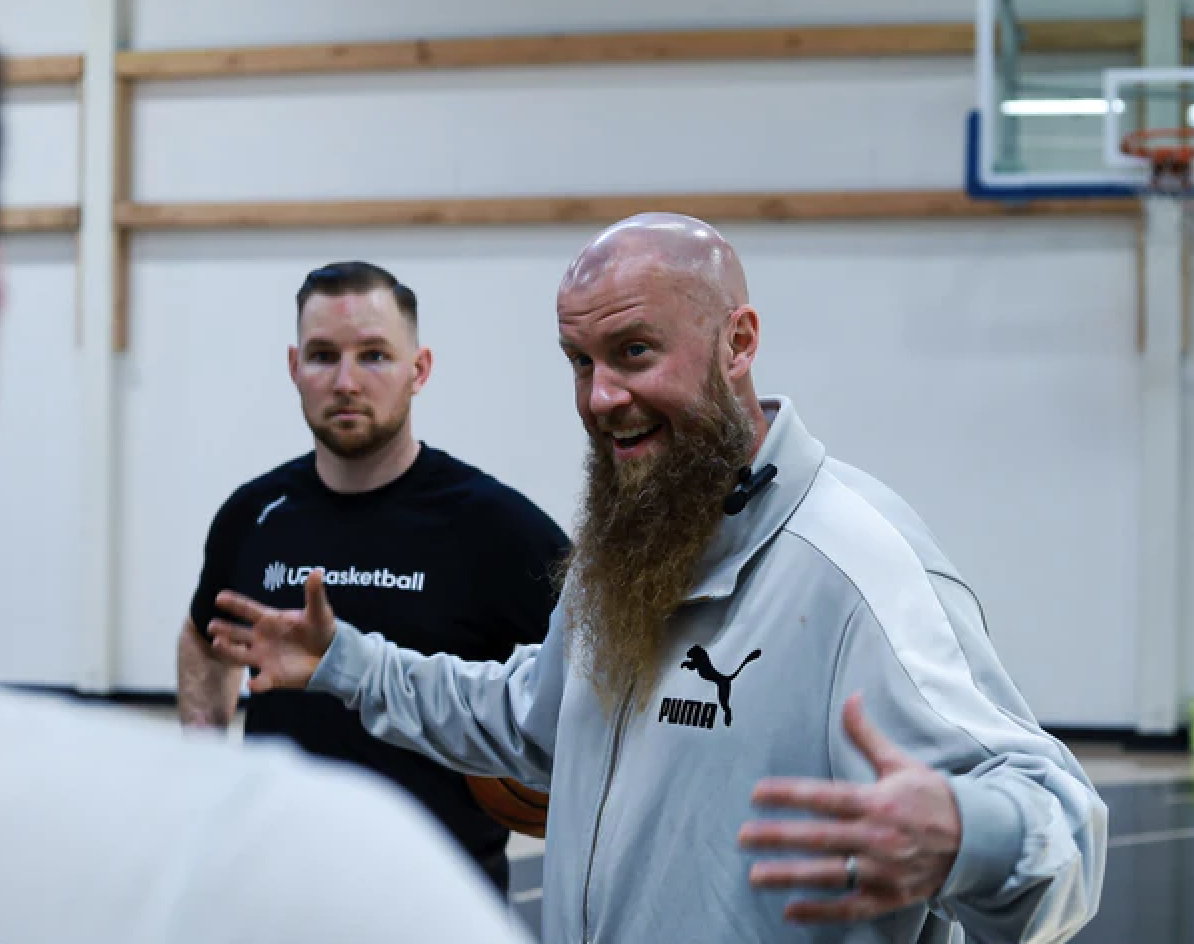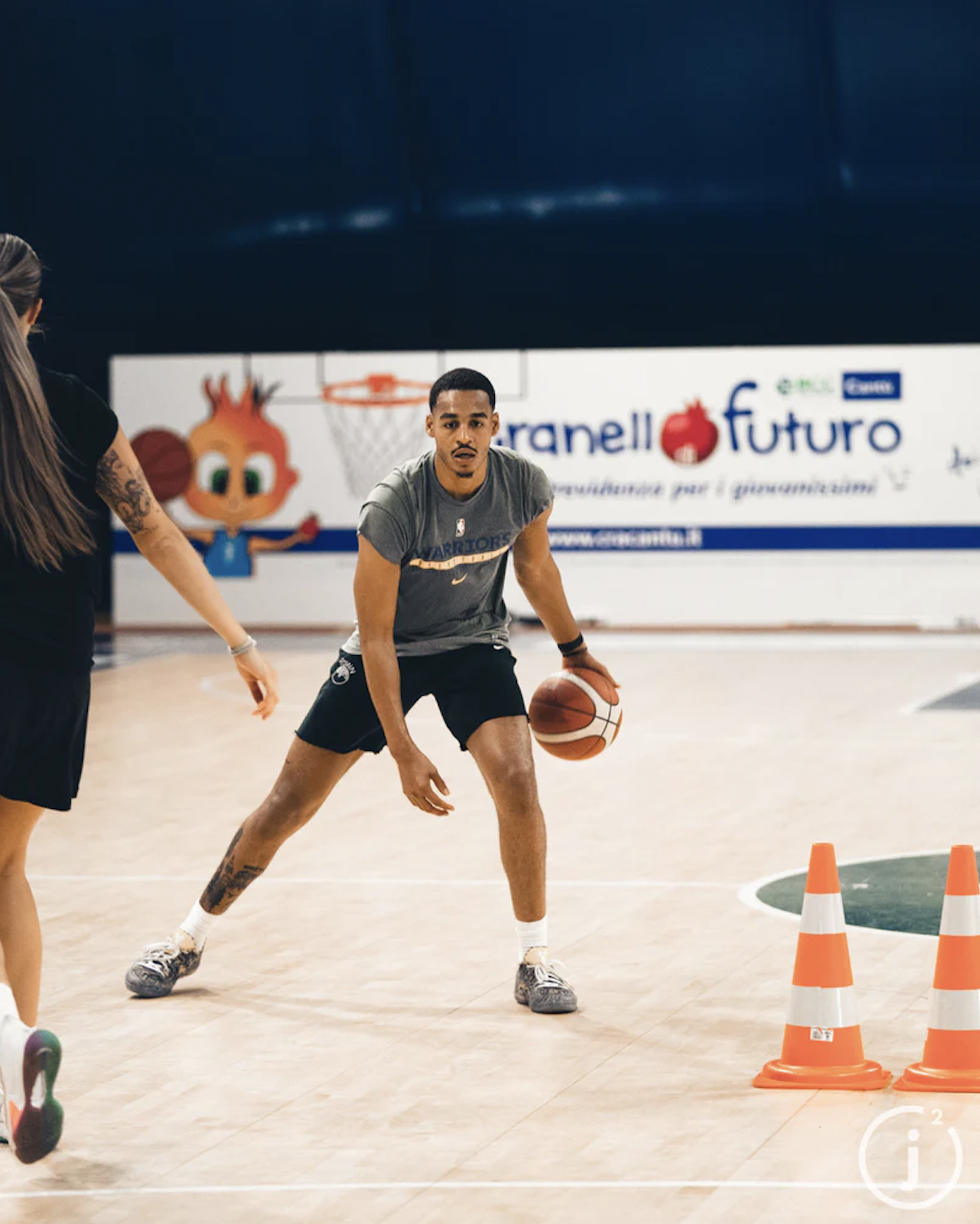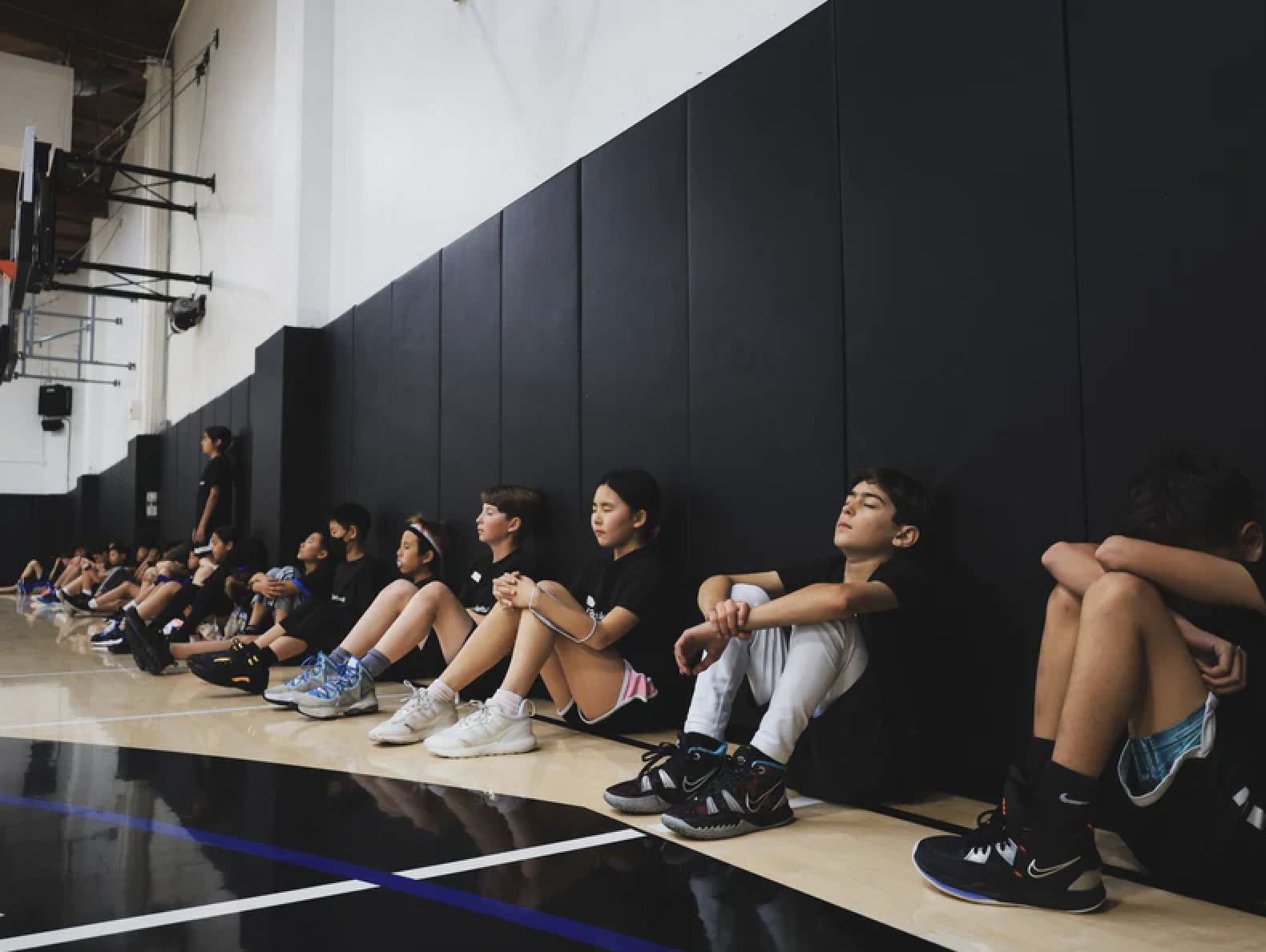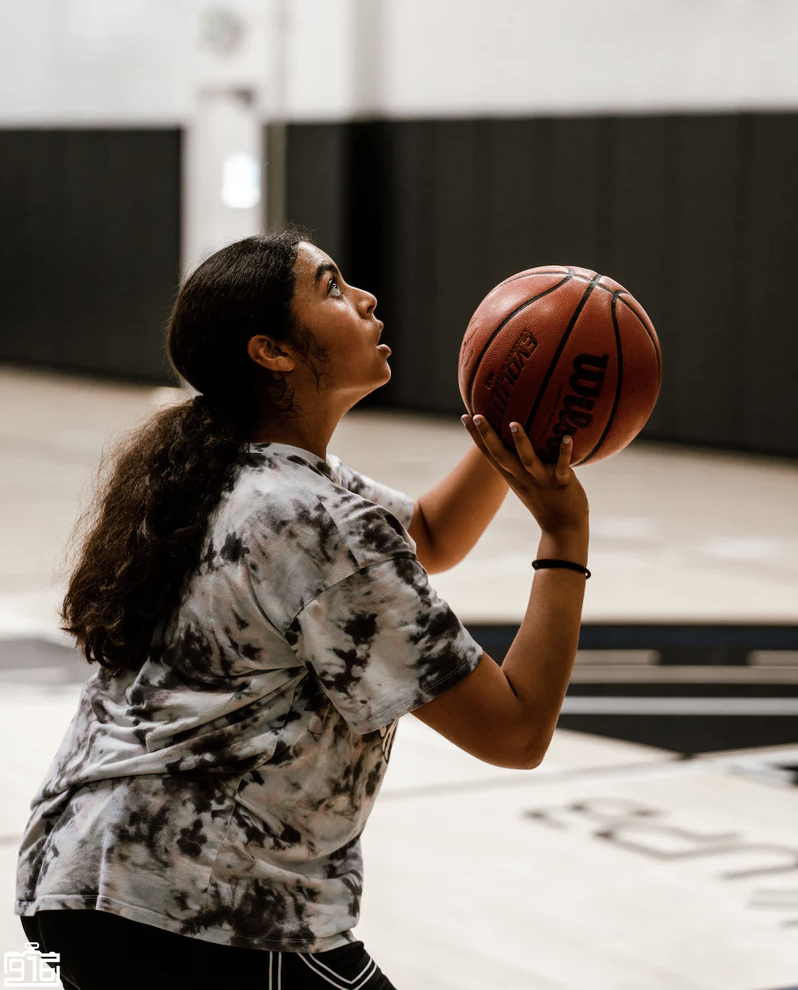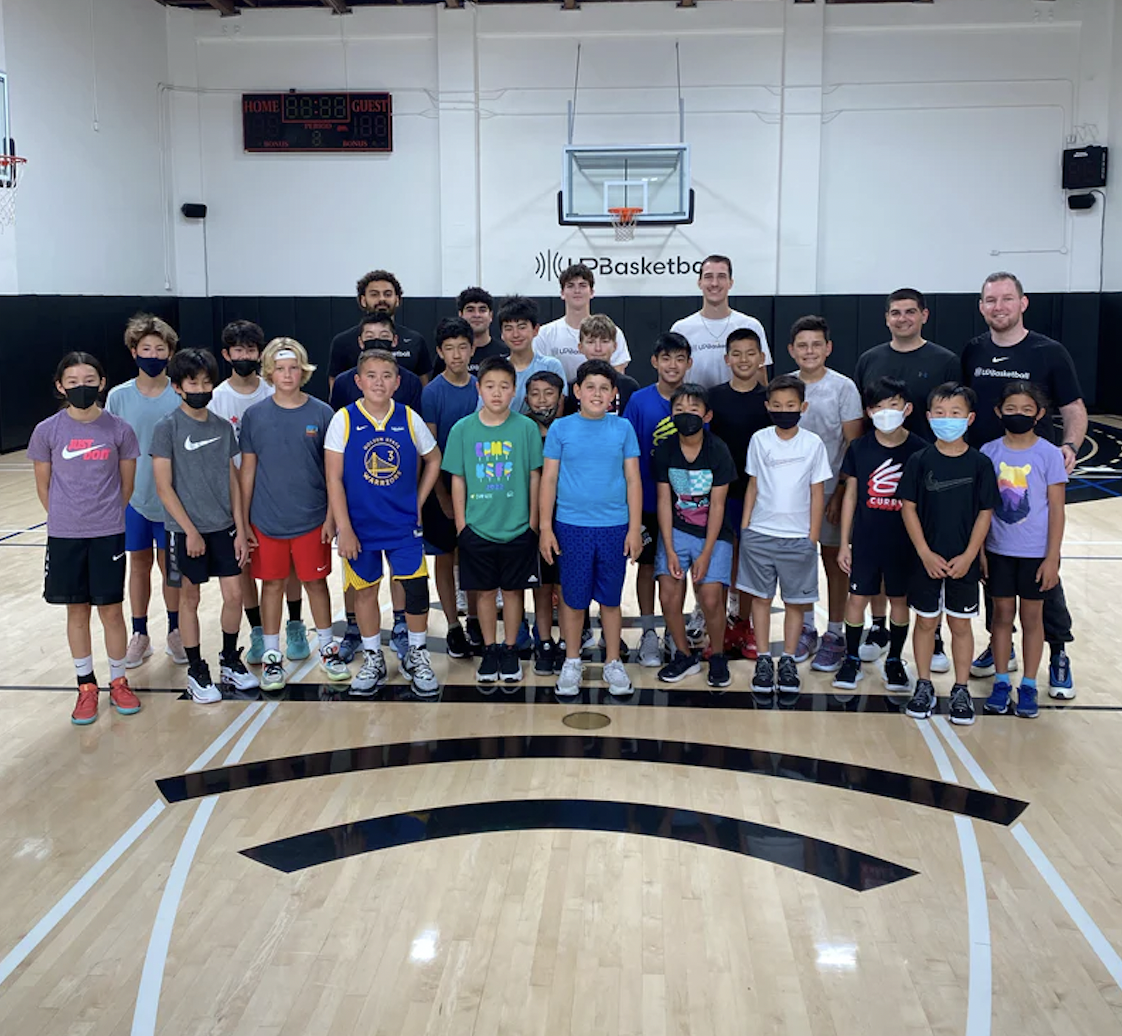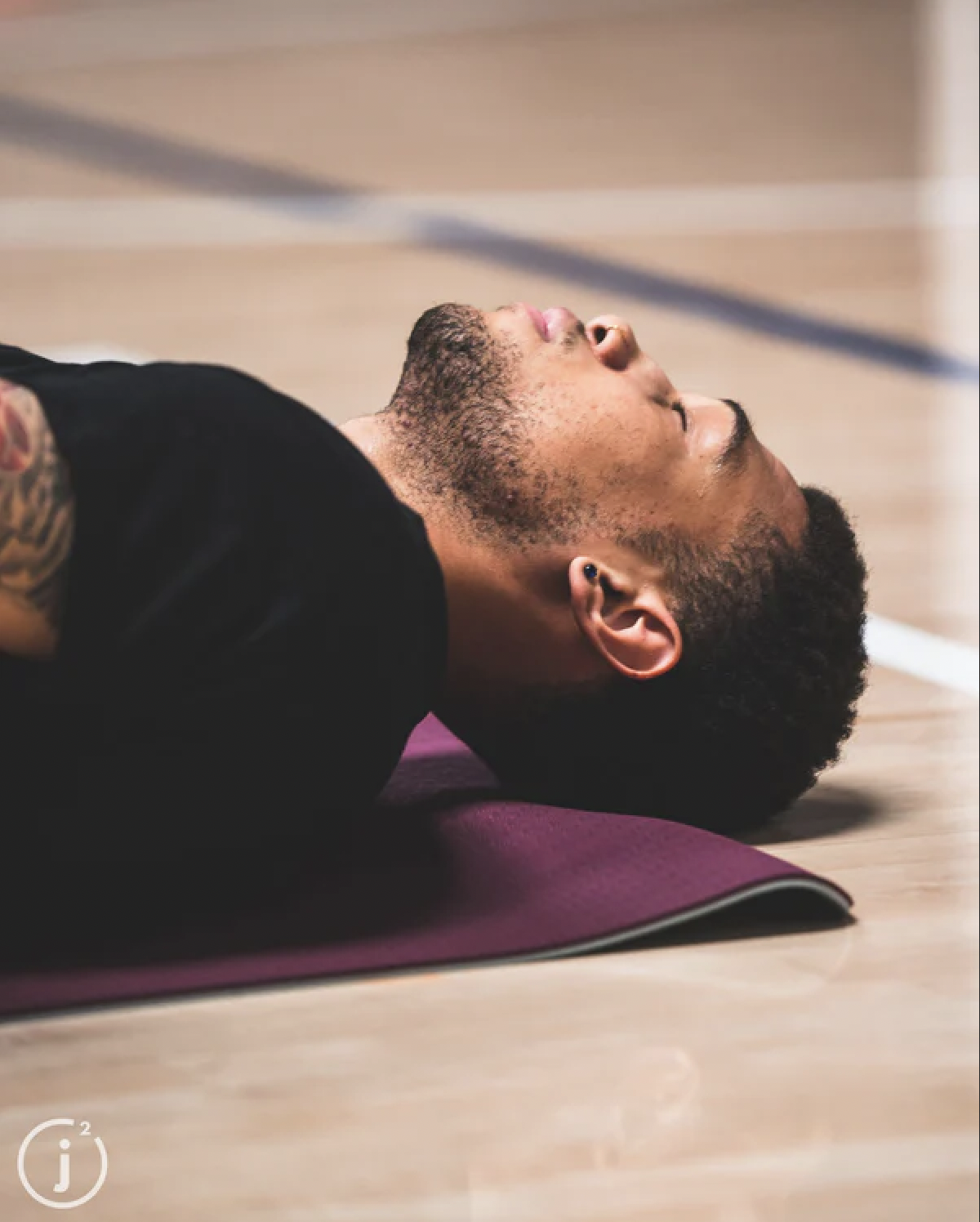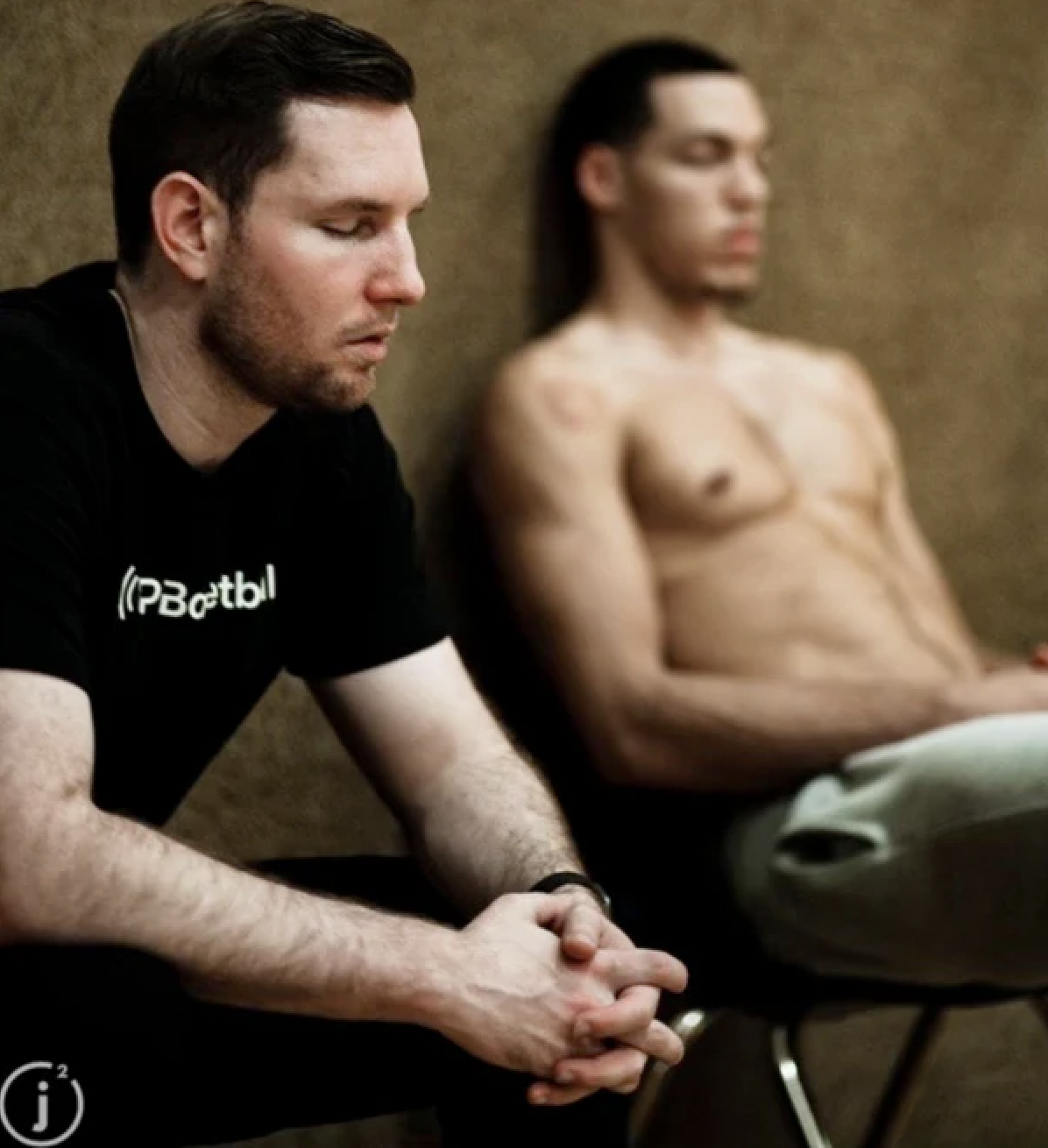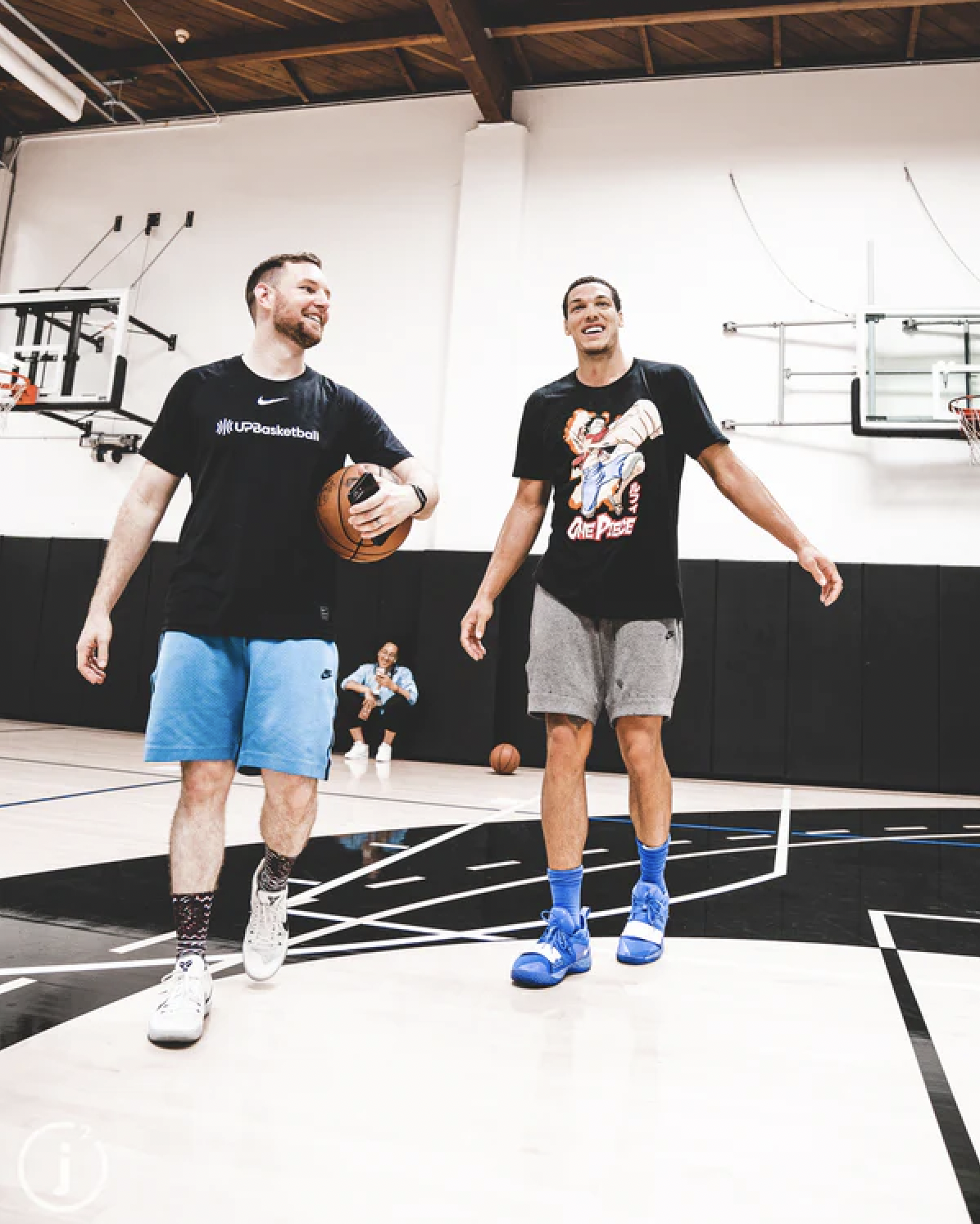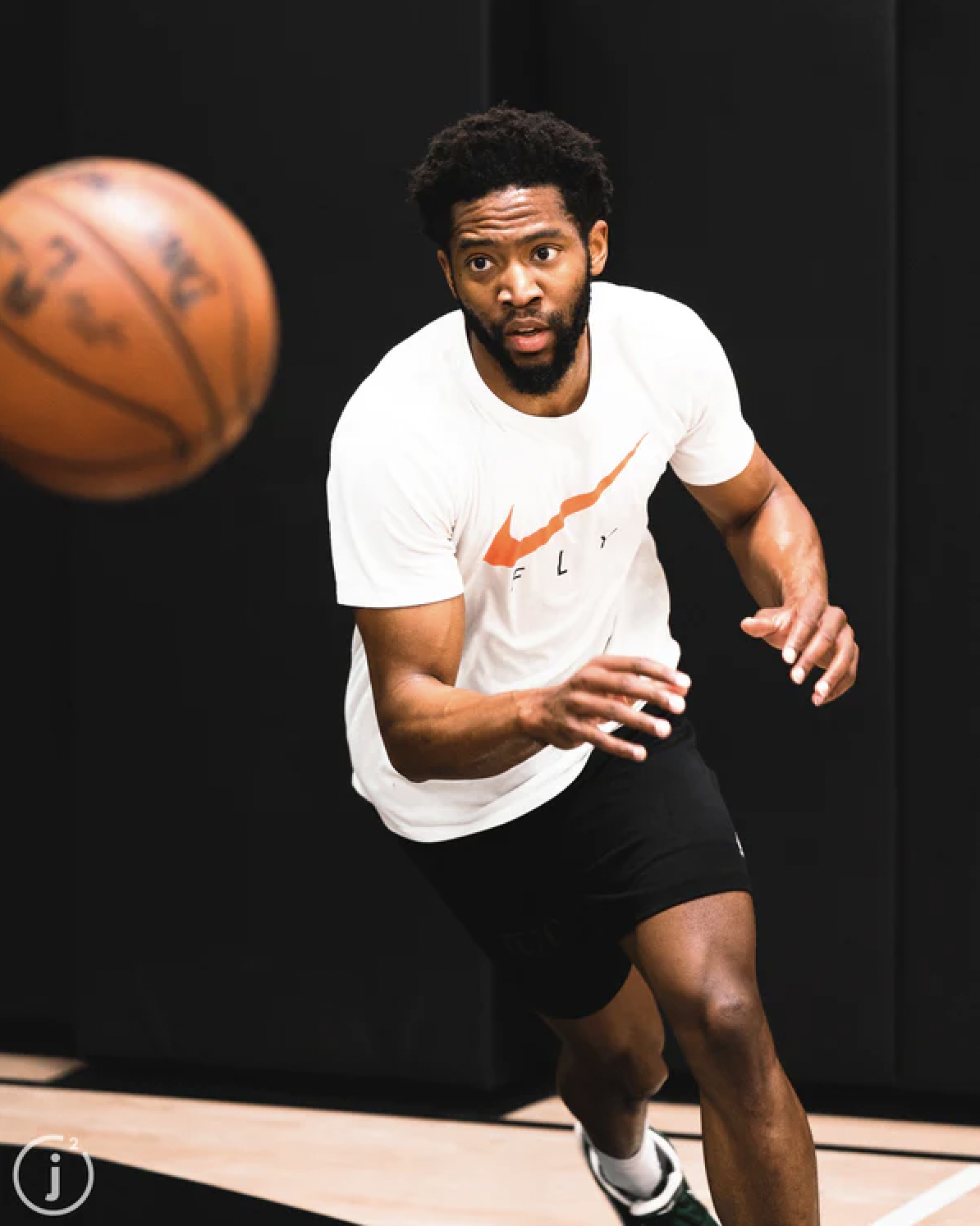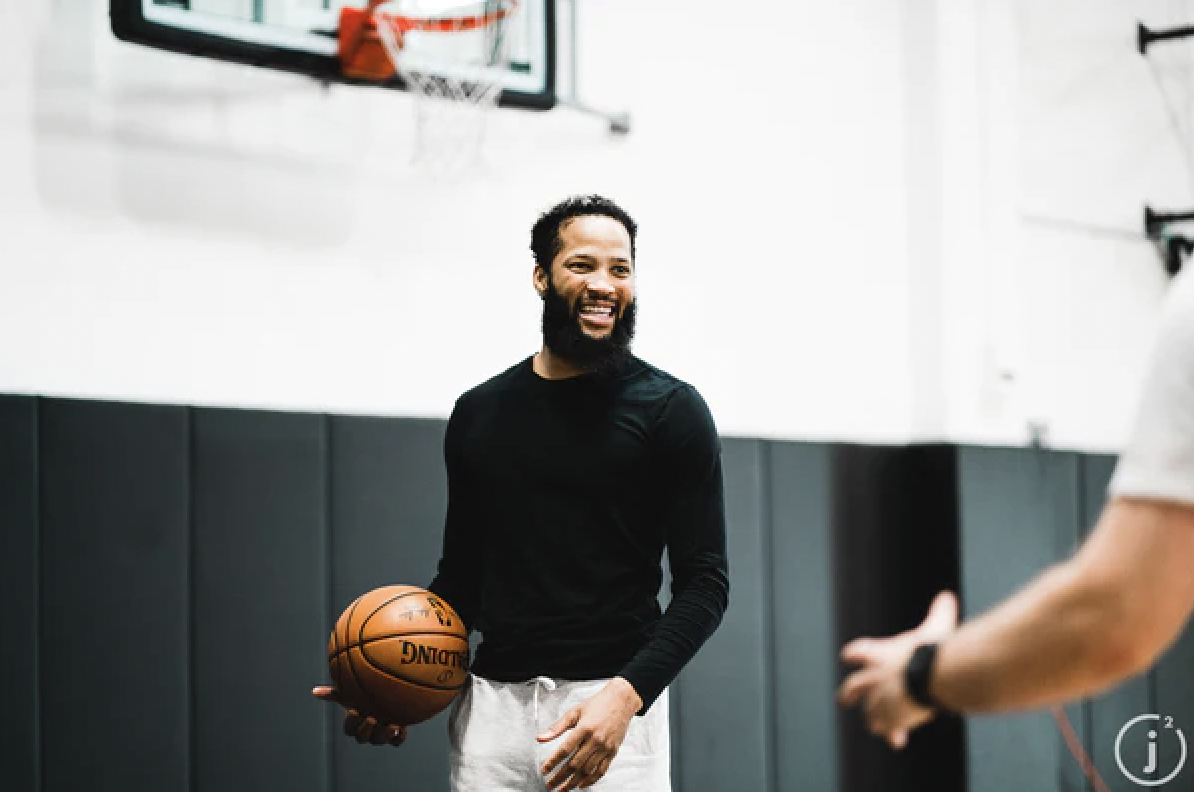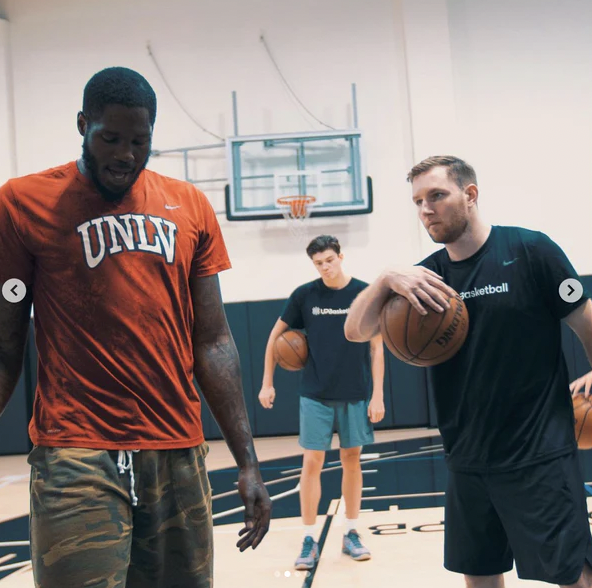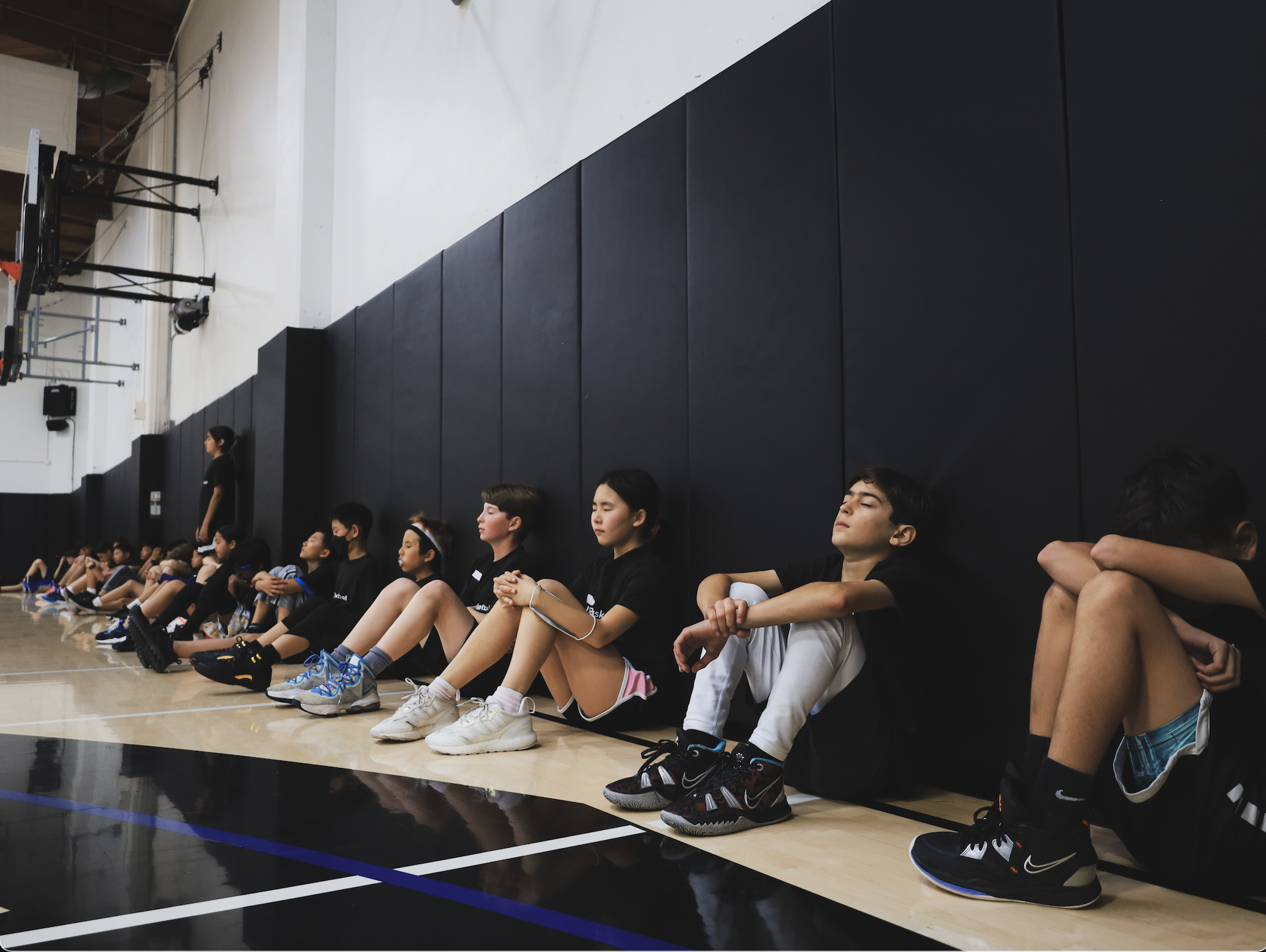
Get Focused
Build Confidence
Perform Under Pressure
Take your game to the next level with mental training.
Mental Skills Training at UPBasketball
“BUY IN, MORE THAN ANYTHING YOU NEED TO BE MENTALLY STRONG" -AARON GORDON
At UPBasketball we help athletes understand how to play present and discover their personal greatness on the court and in life. Mental training provides a skillset to deal with high pressure situations and build mental toughness. This type of training is just like any other skillset, it is not a quick fix and is developed with daily practice.
Mental Skills Training
UPB is now offering 1-on-1 Mental Skills Training with Player Development Coach, Ben Ruelas. Mental training helps athletes build confidence, focus, and resilience, enabling them to perform at their best under pressure. While we work together, we will be doing a combination of off-court work to grow your mental skills, as well as working on the court with applications of skills. Each session connects mental skills to real game situations, helping athletes stay composed, motivated, and adaptable. These skills include self-talk, mindfulness, cultivating a growth mindset, visualizations, and more. The goal is to help players trust their preparation and respond with clarity, no matter the situation.
45 minute off-court 1:1 virtual Mental Skills Training
First time trial: $90
Single Session: $100
4 Pack: $360
Please email privatetraining@upbtraining.com to book these sessions.
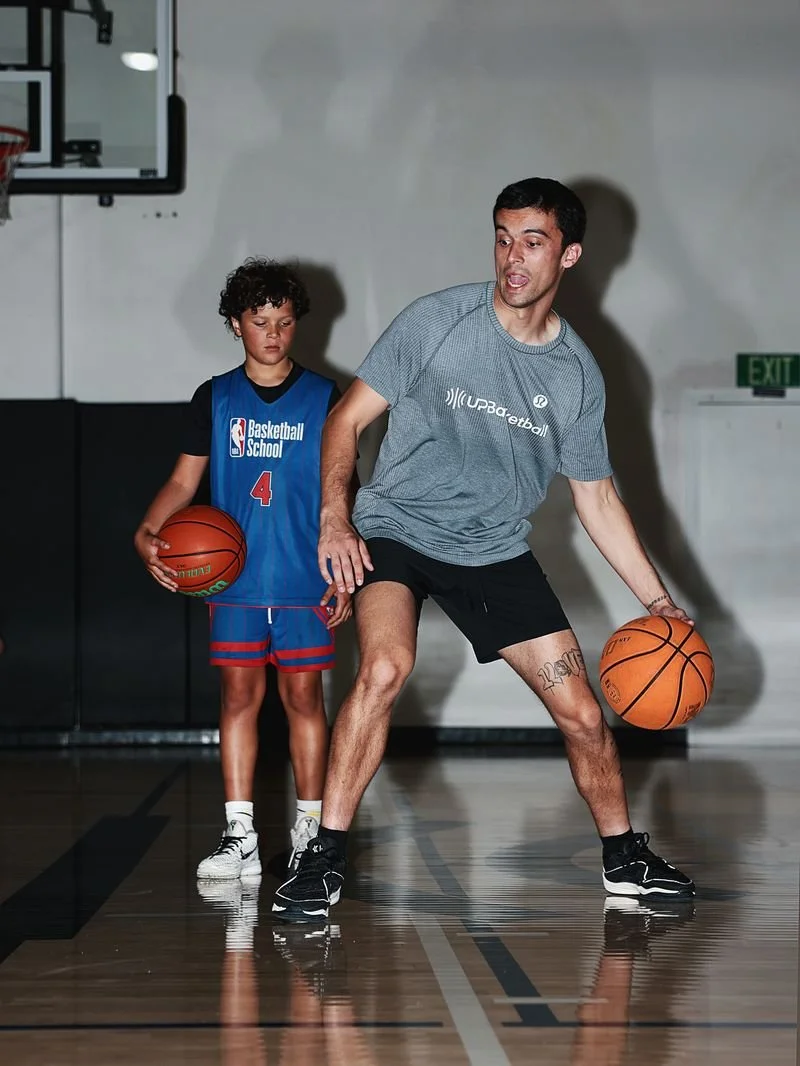
Read more on Mental Skills Training at UPB
-
![]()
More Than Just a Broken Bone: The Mental Side of Injuries
Studies show that athletes who get injured often struggle with things like anxiety, frustration, and even depression. It’s not just about missing games—it’s about missing your routine, your teammates, your identity. And for young athletes, that hit can feel even harder. So how do you deal with it?
-
![]()
Training the Mind Through MVPs with UPB
Each of these mental tools—meditation, visualization, and positive self-talk—can make a big impact on their own. When used together, they create a powerful mental training system that helps athletes stay focused, confident, and resilient. At UPB, we believe in developing the whole athlete, and that means training the mind just as intentionally as we train the body. Continue to train the MVP’s in your mind, and you will become an MVP on the court.
-
![]()
Raising Resilient Athletes: The Parent’s Role in the Mental Side of Sports
Parents play a critical role in an athlete’s development, particularly when it comes to supporting their mental and emotional growth. However, it’s a unique role that can be tough to navigate. You’re not their coach, but you’re also more than just a cheerleader.
-
Mastering the Mind with Coach Joey
“The earlier you start mental training, the easier it is to mold your brain into a mindset built on good habits. It’s easier to train your brain because the older you are the more cemented you are in your beliefs and habits but there’s always room to learn and grow”
-
![]()
UPB Mental Skills Clinic Led By Graham Betchart, Packie Turner, and Joey Hewitt Returns for the Second Straight Year
“It's one of my favorite things to see, an athlete making a breakthrough mentally, or telling me about a moment where they used one of the mental skills in a game and it helped them get through it,” Hewitt said. “Giving back to all these young athletes is very fulfilling. To equip these athletes with all the skills that I feel like I needed and didn't have when I was their age is a great feeling.”
-
![]()
Coach Joey Shares Insight on Parental Guidance while Honing Mental Skills
“The higher level an athlete is at, the more pressure there is, and the more stakes there are, which makes it more important for the parent to kind of build the opposite direction in that and be a consistent rock, be a consistent supportive presence,” Coach Joey said. “That was something that really helped me, personally, when I played college basketball and things started to get more real.”
-
![]()
Discussing a Parent’s Role in their Athlete’s Mental Skills Journey
“Everything in regards to our focus stems from the things we hear or the things that we see…The parent is a very influential person in an athlete's life in the sense that what they say, the children take in and what they do, the children mirror naturally,” Coach Joey said. “Being able to use a language that is focused on the right things, focused on the process, focused on the things that are in the athletes control, I think is very important.”
-
![]()
Graham Betchart shares his Sports Psychology Journey and best Mental Skills Practices for Parents
Nearly a month after the Mental Skills Camp at UPB, we caught up with Graham Betchart to discuss his journey in sports psychology and what techniques he finds most helpful. In particular, we spoke with Betchart about how parents can support their athletes as they continue to grow in the mental side of the game.
-
![]()
Graham Betchart and Packie Turner emphasize the importance of Mental Skills in an Athlete’s Game during Mental Skills Camp
On Saturday, August 12th, Unlimited Potential Basketball hosted its first Mental Skills Camp brought to athletes by Sacramento Kings’ Mental Skills Coach and Palms Basketball’s Graham Betchart.
-
![]()
Mental Skills Training Camp coming soon to UPBasketball brought to you by Coach Packie Turner and Graham Betchart
“Mental skills are just like physical skills. The earlier you start practicing them, the better, so this is proactive mental skills training. Our goal is to introduce it to the kids really early in life so they can start practicing and get better at it,” Betchart said. “This is some of the most important stuff in life. I mean, not only does this help on the court, of course, with performance and all that good stuff, but these are life skills. This stuff helps you in school, helps you with your work, with your family, [and] your relationships.”
-
![]()
Stress in Sport: Is it a Bad Thing?
Professional athletes are adept at dealing with these stressful environments through years of practice and training. It is a process, so patience and persistence are also very important skills to harness when overcoming stress.
-
![]()
9 Mental Tips for Basketball Players
Basketball is a mental game. Take a look at some of these tips to instantly help you play better on the court.
-
![]()
Add Visualization to your Game Preparation for Success on the Court
Adding visualization to an athlete’s workout plan is beneficial because it increases concentration on the game, reduces pressure leading up to the game and enhances an athlete's ability to perform certain skills in different scenarios. When an athlete visualizes their success, it promotes confidence within themselves and leads to future success in the task they are trying to accomplish.
-
![]()
Master your MVP’s at UPB
Mental training is important to work on for not only an athlete’s game, but for their everyday life. Mental training improves self confidence, helps with stress management, increases drive and motivation, improves concentration, increases mental toughness and so much more.
-
![]()
Mental Performance Coach, Mike Franco, explains why mental training is important for an athlete’s game
Franco believes mental training is important because it is a skill set that an athlete can add to their game that will only make them better. When an athlete mentally trains, it helps them trust and feel confident in their basketball skills, such as ball handling or shooting, when they are in competition or a game. Mental training can help with the pressure on an athlete as well as all the distractions that may come their way.
-
![]()
Coach Kathy Toon speaks on managing your emotions
“Sports, academics, public speaking, in the operating room, or wherever, you have to know how to manage your emotions. No matter what happens in front of you, stay in that performance state. Deal with the other stuff later, but you can't just all of a sudden fall apart,” Toon said.
-
![]()
Five ways to practice mindfulness
“Like anything in life, it begins with your mindset. With what you believe to be true. If you have self doubt, you will hesitate in [the] game. We work to not only sharpen your physical tools but also your mental tools to allow you to fully trust your work and stop listening to the old stories in our head as to why we cannot do something,” Coach Packie said.
-
![]()
Playing mindful can benefit your game and take you to the next level
“I see athletes struggle with their identity all the time and I believe they need to be taught how to separate themselves and their performance from their worth. Being present and in the moment can really help with this,” Turner said. “I know that our gym is the first place many children learn about mindfulness. If incorporating mindfulness into our training sessions helps even just one person I feel like we have succeeded.”
-
![]()
Aaron Gordon Mental Buckets Recap
Denver Nuggets’ Aaron Gordon is more than a professional athlete. He was a heralded recruit out of the Bay Area, a star at University of Arizona, and the 4th overall pick in the NBA draft. Through a diligent work ethic, mindfulness, and a strong support system he is leaving a remarkable legacy. A steady self-awareness coupled with an eagerness to always get better allows Gordon to continuously push himself in workouts and as an activist. He runs a non-profit, takes on different roles on the court, and started a media company, demonstrating to the next generation everyone's potential is unlimited.
-
![]()
Mental Buckets Recap: Chasson Randle
Randle is the epitome of making the best of his situation and is currently averaging five points, two rebounds and two assists per game for the Orlando Magic. And that’s not all. Off the court, Randle is a founder of Volokit, a high-end streetwear brand. For Randle the learning never stops and that is something we all in itself can take away from his time in the UPB gym and beyond.
-
![]()
Ky Bowman Mental Buckets Recap
The ninth episode of Mental Buckets featured a one-of-a-kind talent on and off the court in Ky Bowman. His conversation with Packie and Mike touched on his journey from North Carolina to the NBA, with stops at Boston College, and the Santa Cruz and Golden State Warriors along the way. But, basketball was only part of the story; this podcast touched on so much more than that, and specifically the adversity that Bowman has overcome to the best version of himself.
-
![]()
Mental Buckets Recap: Anthony Bennett
Five-star recruit out of high school. Number one pick in the NBA Draft. Too quiet to lead. These are all labels that Anthony Bennett has worn through the years. After listening to this episode of Mental Buckets, it will become clear that Bennett is a fighter. He's overcome injury, ignored the doubters, and continuously worked to sustain a pro career in the NBA, the G-League, and internationally. Learn more about the fire that continues to drive Bennett towards basketball success, and the veteran players who've supported him, regardless of what challenges he's faced with.
